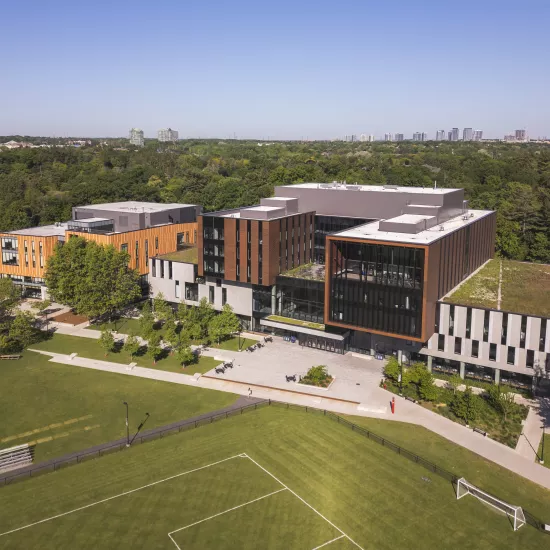Marieval Residential School

To the UTM community,
Last night, as I listened to news of the triggering discovery of unmarked graves at the Marieval Residential School, I watched an interview with Dr. Niigaan James Sinclair, the Anishinaabe Professor and activist who had helped lead U of T’s observance for Orange Shirt Day in 2020.
In mourning the lives taken, Professor Sinclair spoke about the systemic erasure of Indigenous peoples, languages and cultures with a poignancy and power that bears repeating. “Even though we were here,” he said, “even though we are here, we continue to be treated as if we aren’t here.” In the face of this erasure, Professor Sinclair suggested the urgency for a collective recognition of presence and pain: of the unconscionable past that we have inherited and the trauma and injustices that continue today. I write now in that spirit of truthful recognition.
Yesterday, the Cowessess First Nation discovered the remains of more than 750 people in unmarked graves near the former Marieval Residential School in Saskatchewan, less than a month after the discovery by the Tk’emlúps te Secwe̓pemc of the remains of 215 Indigenous children on the grounds of the former Kamloops Residential School in British Columbia. Other horrifying discoveries at other sites will almost certainly follow. “Absolutely tragic, but not surprising,” in the words of National Chief Perry Bellegarde, the most recent discovery bears witness to the truth that Indigenous communities have long lived and shared. The Canadian system of residential schools robbed Indigenous families of their cultures, their languages and their lives. It contributed to a larger colonial system that perpetrated genocide and that continues to traumatize and harm Indigenous peoples today. This is the truth; and we can’t pretend as if it isn’t here.
As a symbol of grief and sorrow for the Indigenous children taken, the University of Toronto will fly flags at half-staff across all three campuses. We will also continue to match this sorrow with a commitment to action, focused on the priorities voiced in our institutional response to the Truth and Reconciliation Commission: “Answering the Call: Wecheehetowin.” The acceptance of truth comes with an acceptance of responsibility, both at the University of Toronto and across the country. “No Canadian,” as the TRC explained in its Final Report, “can take pride in this country’s treatment of Aboriginal peoples and, for that reason, all Canadians have a critical role to play in advancing reconciliation.”
We also have a critical role to play in supporting people in mourning. To members of the U of T community: please know that you can reach out and access resources through Indigenous student services, My SSP, UTM’s Equity, Diversity and Inclusion Office or the Employee and Family Assistance Program. For people experiencing pain or distress from their experience in a Residential School, a national crisis line remains available 24 hours a day: 1-866-925-4419. To offer material support, you could consider donating to the Indian Residential School Survivors Society (IRSSS). Based in British Columbia, the IRSSS strives to provide physical, emotional, intellectual and spiritual growth, development and healing for residential school survivors, families and communities.
Alexandra Gillespie
Vice-President and Principal
University of Toronto Mississauga



